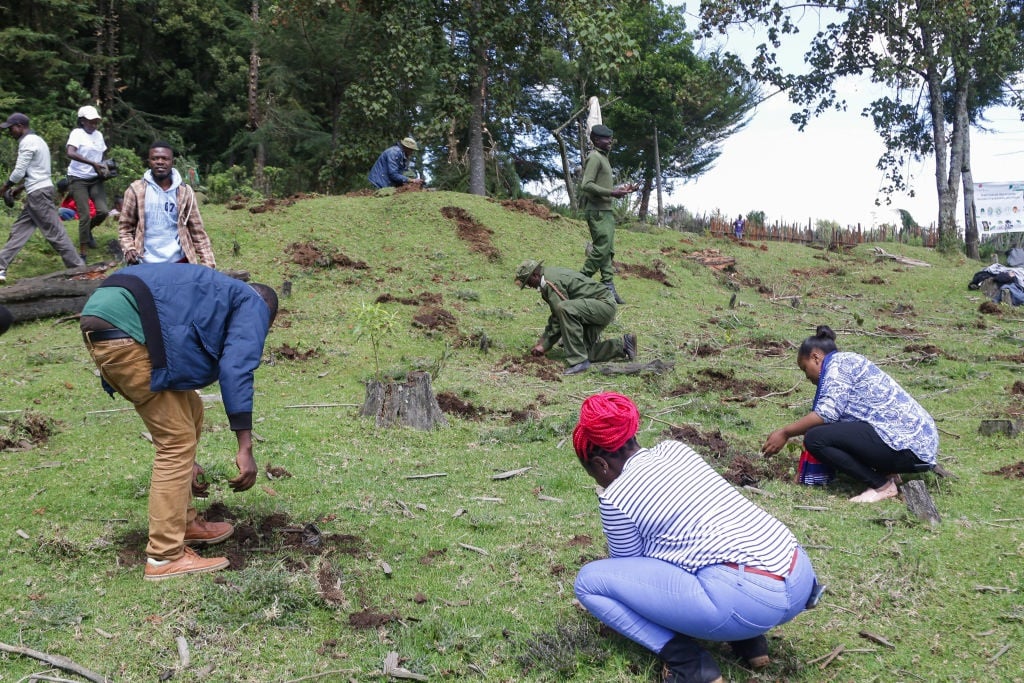

Kenya forest service rangers and volunteers plant tree seedlings at a deforested area inside Mau Forest in 2021. (Photo by James Wakibia/SOPA Images/LightRocket via Getty Images)
- Monday was declared a public holiday in Kenya, so people could plant trees.
- President William Ruto has vowed to plant 15 billion trees within the next decade.
- Heavy rain in Nairobi did not stop planting events.
Kenyans braved heavy downpours to plant seedlings in Nairobi after the government declared Monday a public holiday to encourage citizens to grow 100 million trees across the country.
President William Ruto has vowed to plant 15 billion trees by 2032 in a bid to boost Kenya’s forest cover following the worst drought to ravage the Horn of Africa region in 40 years.
Ruto declared the surprise public holiday last week, with his government saying the public “shall be expected to plant trees as a patriotic contribution to the national efforts to save our Country from the devastating effects of climate change.”
Despite pouring rain, officials, school students and families gathered in various locations in the capital to plant seedlings.
“I have planted more than 50 trees today. I think this is a powerful and necessary initiative for the planet specially after experiencing a dramatic drought in Kenya for several consecutive seasons,” government official Joan Kirika told AFP.
“I hope we keep celebrating this day annually, not necessarily as a holiday but a yearly reminder to care about the environment and think about the planet.”
Ruto has cast himself as a climate change campaigner, but has faced criticism from environmentalists over his decision in July to lift a nearly six-year moratorium on logging.
He has defended the move, saying it would create jobs, and adding that it was “foolishness” to let mature trees rot while sawmills were importing timber.
A Kenyan court last month barred the government from lifting the logging ban but allowed the felling of several thousand hectares of mature forest.
In 2018, a government taskforce said the felling of indigenous trees in Kenya’s forests was “rampant” and warned 5 000 hectares a year were being cleared.
Forestry and logging contributed 1.6% to Kenya’s economy last year, according to government statistics, which also said the total forest cover was 8.8 percent in 2022.
Kenya’s timber industry employs 50 000 people directly and 300 000 indirectly, according to the government, and the decision to lift the ban came as the economy reels from unemployment and high inflation.
